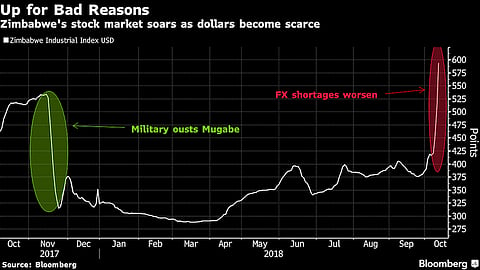No bread, no beer as Zimbabwe currency crisis erupts
EDINBURGH — You can rig an election, but you can't rig an economy. So says Tendai Biti, an opposition politician who was finance minister for a brief period in a unity government, as the Zimbabwe currency crisis erupts. Zimbabweans have been used to wheeling and dealing in currencies on the black market for many months to cope in a highly dysfunctional economy. But, as the dust settles on the July elections, conditions have rapidly worsened. Businesses have shut their doors and supermarkets have run out of food as Zimbabweans stare another economic collapse in the face. – Jackie Cameron
By Thulasizwe Sithole
A deepening unease is settling over Zimbabwe as the country's fragile local currency loses value at an alarming speed, reports the BBC.
___STEADY_PAYWALL___

